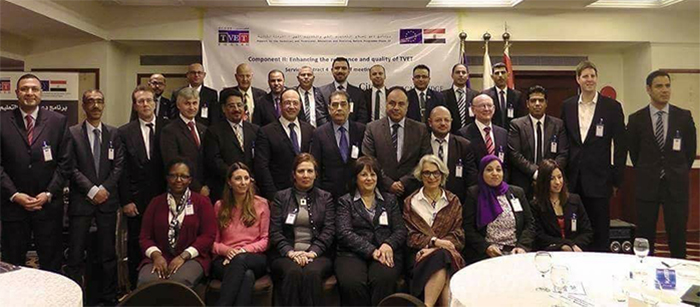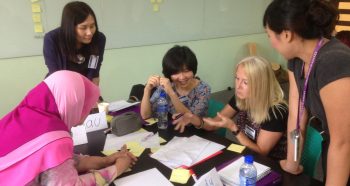As Head of Technical and Vocational Pathways at Cambridge, earlier this year I had the pleasure of attending the kick-off meeting of a large EU funded project for vocational education reform in Egypt.
The project’s objective will improve the quality of technical and vocational education and training (TVET) curricula, and will support the introduction of new curricula in technical secondary schools, technical colleges, technical institutes and vocational training centres.
The project’s three main aims are:
- to determine a methodology for the design of curricula in priority sectors and to build the capacity of teachers, trainers, managers and administrators to support their implementation.
- to prepare a strategy for the continuing professional development of TVET personnel.
- to launch initiatives and develop policies and processes to instil and generate a culture of quality at all TVET policy and operational levels.
Partner kick-off meeting in Cairo for vocational education project
Cambridge’s expertise in vocational education originates from our sister organisation OCR. It is one of the UK’s largest exam boards and offers both academic and vocational curricula and qualifications. In 2016, over 600,000 candidates sat OCR vocational qualifications and 1.4 million certificates were awarded. International demand for this type of expertise is growing, partly because the UN has included access to quality technical and vocational education in its Sustainable Development Goals.
I work in the Education Services team at Cambridge. We support TVET projects and provide consultancy in curriculum development, assessment, and teaching and learning. We also provide expertise in vocational syllabus development and can contribute to capacity development in teaching and learning through our professional development qualifications. In this engagement our aim is to develop 130 vocational master trainers.
Working together
The vocational education reform project in Egypt marks the first time that we have worked together with a consortium of partners to put together a proposal of work and submit a tender. The consortium is made up of partners with similar aims and interests. It is led by GFA from Germany, and we are also working with Cambridge Education and City and Guilds in the UK, and CID Consulting in Egypt.
What the future holds
We will now work closely with the Egyptian Project Implementation Unit and our consortium partners to define a detailed schedule for delivery of the project. The timeline covers 26 months and the project should be completed by early 2019.
We’ve learnt a great deal from this experience of working in partnership to develop our vocational services proposal. Our plan is to join other consortiums in the future for similar types of tenders with a focus on both Southeast Asia and Sub-Saharan Africa. We hope very much that this will be a way for us to further develop our consultancy services in the TVET sector.





